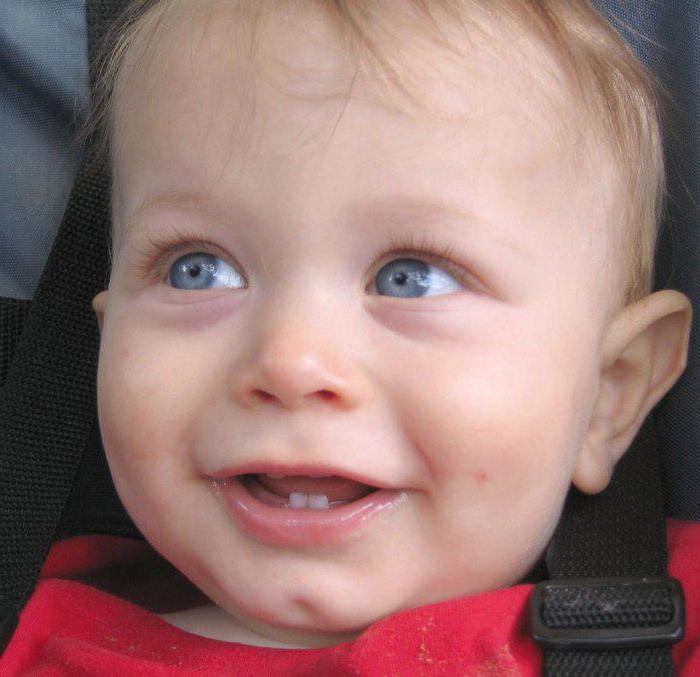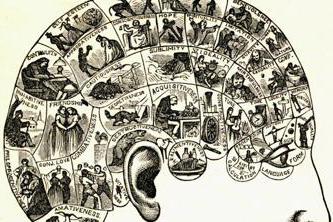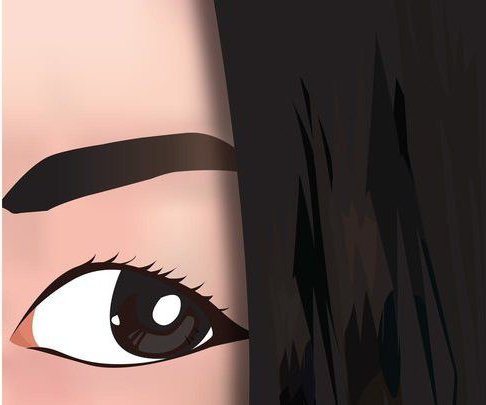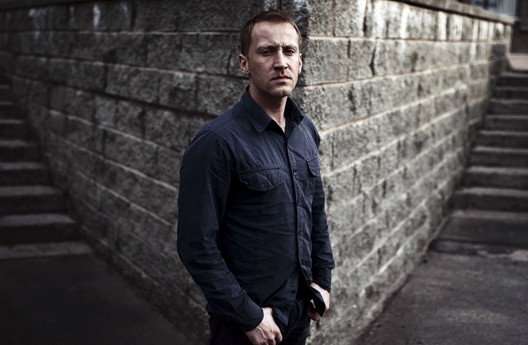whose books have become quite popular in Lately, is based on S. Freud’s concept of psychosexuality. Let's take a closer look at it.
general characteristics
The author of the theory calls understanding the innate properties and abilities of each child as one of the key conditions for the proper upbringing of children. Necessary knowledge System-vector psychology helps to master this area. Vectors are types of "directionality". They indicate what a person likes and gives him pleasure. Self-realization is carried out through a certain role in society. The concept that the author proposes acts as an applied science. It promotes the rapid development of the mechanisms of functioning of the unconscious, its manifestations in each individual, at the level of a couple, group, and society. As a result of assimilation of knowledge, an adult’s thinking is transformed into an objective view of what is happening. There is an acceptance and full understanding of the behavior of others and their life priorities. Vector-system psychology allows a parent to better understand their child and raise him so that his potential is maximally realized.
The essence of the concept
What is system-vector psychology based on? Tolkachev (co-author of the theory) and other researchers of the problem of education develop the idea that each person is born with specific given properties. They determine a person’s life scenario, his behavior and character. These properties are divided into 8 groups. Each of them combines characteristics depending on the role played in society. It, in turn, expresses the goal of humanity, which is survival. Each group (vector) has a connection with a specific sensitive area. It predetermines the method by which a person obtains or deduces information about himself and the world that surrounds him. The innate characteristics of an individual do not change their nature during life. However, they may appear in various forms. 
Basic provisions
Vector-system psychology includes the concepts of the formation and subsequent implementation of directional characteristics, on which the actual behavior of the carrier depends. A person whose properties remain undeveloped will act according to the opposite scenario compared to a developed individual. In accordance with this, the life scenario develops. A person can become a thief or a judge, a genius or a schizophrenic, a rapist or a wonderful family man, and so on. Properties develop up to and including. After this, the characteristics can either be filled/implemented or not. In the first case, vector-system psychology involves the use of innate properties, due to which a person receives satisfaction and remains in a state of harmony. All this suggests that key characteristics are laid down from an early age and improved until full puberty. Main role in this process belongs to the parents. It is they who shape the conditions of the world surrounding the child during this period.
Getting to know the characteristics
The identification of properties begins with a description of their expression during the period of the primitive pack. This allows us to understand the primary, initial state, which is set from birth. This way you can track the development mental characteristics, which took place as the world became more complex over the past few thousand years.
Nuances of understanding
The question of competent upbringing of children in classical psychology provoked the emergence of many methods of child development. However, some of them clearly contradict each other. Their ineffectiveness and the misconceptions that arise are due to the fact that they do not have an established definition of the “normality” of a child. There are no absolute signs by which a person at an early age is considered mentally healthy, and his behavior is recognized as adequate, nor vice versa. In this regard, over the past half century, the category of acceptability has included early sex life, and rejection of innate gender identity. What does Yu. Burlan offer in this case? System-vector psychology defines the concept of norm in a differentiated way, according to the innate characteristics of the child. This prevents harm that parents can cause to the development of their children, and also allows for early stage identify the most effective educational methods. 
Abstracts
- The child does not inherit characteristics from the parents and may have completely different properties.
- The main task of adults is to provide children with safe conditions and a state of security. Otherwise, development slows down, distorts or stops.
- Methods of education and training must correspond to innate characteristics.
- The consequences of mental trauma received before puberty can be neutralized or alleviated through systemic interaction.
- Children are representatives of the next generation. This means that the innate strength of desire and their potential is significantly higher than that of the parents.
- In everyday communication, upbringing and development of a child, the key is the systematic thinking of older family members. This is especially true for the mother, since she is the main person in life until the end of puberty.
Let's consider some groups that are distinguished by system-vector psychology. The vector identification test contains specific questions. Based on the answers to them, belonging to one type or another is established.
"Dermatologist"
The specific role of such a child is to create and store food reserves. He has a logical type of thinking. System-vector psychology defines mobility and activity as the innate properties of such a child. He has sensitive skin and a flexible body, which predetermines his choice of dancing and sports. Such a child is quite stingy with emotions and words. He is characterized by short, succinct phrases. It is important for parents to teach him the rules and show him boundaries. 
Life values
How do the system-vector psychology of Yuri Burlan characterize them? The test shows that with the development of the innate qualities of a “skin maker,” a child grows into an engineer, legislator, and successful manager. He knows how to both obey and subjugate, disciplines himself and those around him. If a child is punished by beating, he will develop a craving for masochism. If his qualities are underdeveloped, he becomes a thief, an alcoholic, and girls grow up to be prostitutes.
The necessary conditions
Vector-system psychology formulates a number of rules for the normal development of a child with skin. First of all, he should be accustomed to routine and discipline. Key value will have sports activities. In the process of education, the author of the concept recommends that parents negotiate incentives for the child to perform certain actions. The most acceptable punishment may be restriction in time and space. 
Urethral direction
Children of this type tend to take responsibility for life and strive to expand their living space. This is exactly the description given by system-vector psychology. The vector determination test shows non-standard tactical thinking. Such children are bundles of energy and desire to live. They are characterized by a dominant look, their eyes always sparkle. Body temperature is always elevated. Such children do not recognize authorities; they are uncontrollable. At the same time, if parents choose the right approach, they will raise a very responsible person. Such children react with lightning speed both mentally and physically. They do not feel restrictions, and therefore do not perceive danger. This, in turn, causes high mortality by negligence. A person of this type with developed innate abilities is able to lead people. Quite often, such children grow up to be directors of large enterprises. If the innate characteristics are undeveloped, the child experiences pressure or violence from adults in childhood, he runs away from home. Such children often become leaders of criminal associations. An emphasis on responsibility is the main condition for development, which system-vector psychology assumes for them. Books describing the concept contain detailed comments and recommendations for parents of such children. The authors believe that adults should not persistently demand obedience; it is only necessary to guide the child’s actions. 
Muscle direction
Physical labor is the main guideline that system-vector psychology sets for such children. The direction test indicates two main states: rage or monotony. In the latter case, a person has a tendency to work hard. He can perform the same work every day, every year. Such people do not have their own opinion; they will act as they were taught. Choices in life will depend on who influences the child's development. The thinking of such children is characterized as visually effective. They do exactly as they were shown. This property must be taken into account during the learning process. These children cannot be called stupid. They have a specific way of thinking. It is thanks to him that only they can do the job so consistently. With developed innate properties, such children grow up to be very hardworking specialists. They build, plow the land, work in the mines. They do not have high demands; what they were able to get by working with their hands is enough for them. If a child is not taught to work, he may grow up to be dangerous. Criminal authority. He will easily end up in a criminal gang, where he will show his physical strength.
Impressionable children
They are characterized by a visual vector. In system-vector psychology, such children are classified as bright extroverts. For them, rapid mood swings are considered common. Such children have a highly developed fear of death. With illiterate upbringing, it transforms into persistent phobias. Many such children are afraid of the dark and refuse to sleep with the lights off. This is because the threat cannot distinguish them and ensure safety. Such children have a well-developed imagination. They make things up easily different stories, bring inanimate objects to life. The main task in life is to understand the world. That is why the main zone of perception is the eyes. As a rule, they are large and expressive. These children like everything beautiful and are prone to coquetry. The most important aspect For them, the establishment of emotional connections is important. It can be created with inanimate objects, and with people, and with animals. The immune system of such children is weak, so they are the first to catch viral diseases. With developed innate characteristics, they grow into deeply feeling, loving and sincere people. They are negatively influenced by intimidation, reading scary tales. Having become fixated on such emotions, a person begins to choose horror films himself, goes to a cemetery at night, reads dark books, and so on. 
Sound direction
Children of this vector are different. They begin to be interested quite early in the meaning of life, the existence of people, and their purpose. Subsequently, these kinds of questions can be pushed to the unconscious level. However, they become especially acute during puberty. Sound children are uncommunicative and thoughtful. They prefer privacy. Their faces often do not reflect any emotions, but this does not mean at all that they do not exist. During the first half of the day, such children, as a rule, are lethargic and somewhat inhibited. It is quite difficult for them to concentrate on the first lessons. Due to this, they are at risk of becoming academically unsuccessful, despite having a fairly strong mind. With normal development, children exhibit good intellectual abilities. Exact sciences and languages are easy for them. With developed innate characteristics, geniuses grow out of them. Such people become outstanding physicists, scientists, writers, and philosophers. Noise and screaming hinder their development. Children perceive them very painfully. As a result, they withdraw into themselves and distance themselves from the world around them. Their condition becomes tense and depression appears. Drug addiction is possible and headaches are common. These children are at risk for autism and schizophrenia.
Oral direction
Such children are cheerful and talkative. They are always on the rise and can join any team. It is important for them to find listeners. If someone interrupts them, they tend to compress the information so that they can get it all out before they are interrupted. Therefore, their speech becomes incoherent and rapid. These children have increased sensitivity of the mouth and lips. They like to touch them. They can come up with a story on the fly and are easily deceived. They need all this to attract attention. Children with developed qualities become actors, TV presenters, and speakers. They are knowledgeable about food. In the case of undeveloped intelligence, children become buffoons who never shut up for a minute. They even talk while eating. 
System-vector psychology: reviews
It should be noted that the concept has become quite widespread in Russia. Its author conducts seminars, lectures, and courses. He has created a large number of video tutorials. Online trainings are also conducted. Seminars and lectures are attended by both ordinary people, completely ignorant of psychology, and specialists, doctors, psychiatrists. Most of them speak positively about the work of Yu. Burlan. Lectures help people cope with problems that have arisen in the family and reconsider their approaches to education. Nevertheless, there are also those who negatively evaluate all this activity. For example, Vyacheslav Yunev is different in this regard. System-vector psychology, in his opinion, is an attack on human consciousness. Streams of criticism were directed at the author of the concept. However, some of his angry articles were refuted both by followers of the theory and by those people who were able to solve family problems using system-vector psychology.
System-vector psychology – newest direction in psychology, formed twelve years ago. The founder is a psychoanalyst Yuri Burlan, which currently systematically conducts its seminars, courses, and trainings. It’s interesting that they also take place online on the Internet, attracting thousands of viewers and listeners.
Yu. Burlan himself says that he the main task- to make a person happy, to make sure that after his training, clients leave with the main skill - the ability to enjoy life and smile, everything else, according to the psychologist, will work out on its own.
Since the main emphasis in this direction is on unconscious, and the personality typology is based on erogenous zones person, he can be described as branch of psychoanalysis. Although sometimes system-vector psychology is defined not just as a separate direction in psychology, but as a new broad area of knowledge, complex science about a human.
System-vector psychology and systemic psychoanalysis is an extensive system of psychological knowledge about a person, a direction in applied psychology.
Yu. Burlan touches on sociology, pedagogy and even politics, explaining his theory; he takes a comprehensive approach to understanding the phenomenon of personality functioning in society.
Species role and vector
In system-vector psychology, a person is considered as an integral complex system in social system, and this system is not only physical and mental, but also social. Special role in the formation of personality Burlan assigns society and the instinct of procreation.
Human, according to Yu. Burlan, this is a clot of a living being that wants to have fun, enjoy. This desire and desire for pleasure in the body is expressed through the erogenous zones.
 Society pushes for development not only of a specific person, but also of humanity as a species. When in ancient times people began to gather together and live in groups in order to survive, humans developed special characteristics and desires. Today we say that they were based on two basic unconscious needs, initially, apparently, these were not needs, but group tasks primitive people. And these needs-tasks:
Society pushes for development not only of a specific person, but also of humanity as a species. When in ancient times people began to gather together and live in groups in order to survive, humans developed special characteristics and desires. Today we say that they were based on two basic unconscious needs, initially, apparently, these were not needs, but group tasks primitive people. And these needs-tasks:
- saving life,
- procreation.
Since human development is a movement in a certain direction, it must have a vector, a guideline. The main thing becomes the vector wish personality. Desire gives rise to thought, thought forms intention, and intention pushes to action, which shapes the role of a person in society, species role.
In the primitive pack, each person had his own specific species role, duty, work that he performed for the common good.
A person cannot live alone; he has long united and continues to exist in a single system of relations between people called society. From birth, nature endows a person with everything necessary (intelligence, abilities, feelings, temperament, and so on) so that he can become happy, fulfill all his desires and fulfill his species role.
Along with the development of society, man also developed. The more complex the society, the more multifaceted the mental structure of the individual becomes. Already  So many generations of people have changed that desires, needs, behavior, and human relationships have become so complicated that behind them it is difficult to discern those first, primitive, but already conscious actions in the community, the species role.
So many generations of people have changed that desires, needs, behavior, and human relationships have become so complicated that behind them it is difficult to discern those first, primitive, but already conscious actions in the community, the species role.
Meanwhile, this role is unconscious level still continues determine personality characteristics and its social orientation.
Modern man, not realizing his role in society (by and large, his purpose), is moving in the wrong direction or even in reverse side from happiness.
The role is determined by the desire to enjoy life. Depending on which erogenous zone is predominant for the expression of this desire, eight personality types.
Types of personality orientation
The type of thinking, values, priorities of a person, his sexuality, mental condition, physical health and degree of life satisfaction.
The vector qualities given by nature cannot be changed, but it is necessary develop and implement them your inner potential. Innate properties and qualities develop from the birth of a person to his full puberty.
 Brief description of the eight vectors, defining inner world person on an unconscious level:
Brief description of the eight vectors, defining inner world person on an unconscious level:
- Cutaneous. Species role in primitive society– hunter and guard of the territory, functions: prohibitive, restrictive.
Suitable professions: athlete, engineer, inventor, military man, businessman.
Personal qualities: responsibility, rationality, discipline, activity, competitiveness, punctuality, ambition, economy. Prevails logical thinking, are not afraid of change, strive for leadership, success, wealth, social status, and want to achieve heights in their career. They are well oriented in time and space.
Approximately 24% of the population belongs to this type.
- Anal. Species role – keeper of the cave, hearth, “rear”; functions: transfer of accumulated experience to next generations.
Suitable professions: teacher, doctor, housewife/family man.
Personal qualities: stubborn and principled, but easily wounded, strong-willed, diligent, dutiful, reliable, honest, loyal, indecisive, vindictive, conservative. These are intellectuals prone to perfectionism, they strive to do everything perfectly, so they can be high professionals in any field. Analytical thinking predominates. Such people have excellent memory.
Approximately 20% of the population belongs to this type.
- Muscular. Species role: warrior and hunter, function: protective.
Suitable professions: factory worker, construction worker, agricultural worker and other representative of the working class, as well as the military.
Personal qualities: hard work, diligence, unpretentiousness, endurance, simplicity (basic needs: food, sleep, sex), peacefulness. Thinking is rigid, visually effective, the mind is activated only in the process of muscle work.
Approximately 38% of the population belongs to this type.
- Urethral. Species role – leader, functions: responsibility for survival, management, expansion of the flock and its habitat.
Suitable professions: everything related to leadership and management of people, up to the president of the country.
Personal qualities: innate altruism, optimism, activity, initiative, fearlessness, fair, mercy, cunning, unpredictability. Thinking is tactical and creative.

Suitable professions: psychologist, doctor, teacher, educator, designer, film director and other artists and cultural figures.
Personal qualities: kindness, responsiveness, understanding, empathy, amorousness, modesty, conscientiousness, suggestibility, daydreaming, coquetry, emotionality. Such people are dreamers, they think in images.
Approximately 5% of the population belongs to this type.
- Sound. Species role – night guard of the flock, functions: protection at night, Feedback with the root cause.
Suitable professions: philosopher, composer, programmer, translator, writer, poet.
Personal qualities: idealists (and their desires are mainly intangible), reasonable, focused, self-absorbed, self-centered, unemotional, aloof. Abstract thinking.
Approximately 5% of the population belongs to this type.
- Oral. Species role – beater of prey, herald, jester; functions: warning of danger, call for unity.
Suitable professions: cook, singer, commentator, speaker.
Personal qualities: cheerfulness, sociability, humor, charm, sense of humor. Such people tend to lie and mock. They think when they speak, that is, their thinking is verbal.
Approximately 5% of the population belongs to this type.
- Olfactory. Species role - scout, adviser to the leader, sorcerer, " eminence grise"; functions: strategic intelligence.
Suitable professions: intelligence officer, politician, financier.
Personality traits: melancholic, calm, intuitive, impartial, sometimes immoral and insidious. Such individuals think intuitively, on an unconscious level.
Approximately 1% of the population belongs to this type.
Why do you need to know your vector?
In the primitive pack, each person had one, specific vector, since this society was primitive. Today, the type of personality orientation usually consists of several vectors, on average from 3-4 -X. People whose orientation consists of seven or even all eight vectors, as a rule, are outstanding or brilliant.
The presence of several vectors at once means that modern man There is more possibilities for self-realization and chances for happiness. But this is how the world and people work, that often what should be a source of pleasure turns into a reason for suffering. Due to the ignorance and unwillingness of many people to understand themselves, the system called “man” fails.
 Although the author of the concept emphasizes that pure types are very, very rare, by identifying your dominant vector type, you can learn a lot about yourself, understand problems and find ways to solve them. The vector of personality is always aimed at self-realization and achieving well-being.
Although the author of the concept emphasizes that pure types are very, very rare, by identifying your dominant vector type, you can learn a lot about yourself, understand problems and find ways to solve them. The vector of personality is always aimed at self-realization and achieving well-being.
A nice bonus: if you learn to distinguish personality types by vector, the process of understanding and communicating with people around you will become easier and improve.
The description of the eight vectors is the basis of the principles of system-vector psychology and at the same time basic idea . If you “dig” this direction deeper, you will find that Yu. Burlan touches on and explains many phenomena of the inner world of man and the external world of society.
Systemic psychoanalysis is becoming fashionable in Russia and throughout the post-Soviet space. It is already effectively used not only in psychology, but also in medicine and pedagogy. People are attracted to this direction by the special, systemic thinking and worldview to which Yu. Burlan “switches” a person. His approach is unusual and controversial, but nevertheless popular.
Test “8 figures” to determine a vector
Look at the 8 figures and choose the most pleasant figure for you:
27, medium: 4,44
out of 5)
Sound vector
Night is the sound time of day. In the primitive flock, the soundman listened to the silence: did a twig crunch somewhere under the leopard’s paw? Late in the evening and at night, sound people feel much more alert than during the day. It is difficult for them to get up early; they cannot wake up for a long time.
 Visual vector
Visual vector
Fixation in childhood on the state of “fear” deprives the mature viewer of the ability to move from fear to the state of “love”. He loves to scare himself: watching horror films, going to cemeteries at night. Death and everything connected with it frightens the viewer.
Skin legend: “Those who save become rich,” “A penny saves the ruble.” This is the biggest ambush for a skinny person: in an attempt to save on little things, he loses big. For example, having saved on an advertising campaign, you lose money for the entire project. Skin vector
Skin vector
 Olfactory vector
Olfactory vector
There are receptors in the nose that are responsible for the conscious differentiation of odors: pleasant - unpleasant. And the so-called “zero nerve” distinguishes not odors, but pheromones. Pheromones are the basis of everything that happens between people. Two important processes occur through them...
When an oral person speaks, it always sounds convincing. Although his speech is often incorrect. He may have incorrect diction, distort words, confuse stress, but what he says is imprinted in everyone’s head. Oral vector
Oral vector
Without it, the existence of modern civilization would be impossible. Accustomed to arranged life, people don’t think about where the food in stores comes from, who works at the neighboring thermal power plant, and what makes the sewage system work. All this rests on the shoulders of the muscular part of humanity. Muscle vector
Muscle vector
 Urethral vector
Urethral vector
The entire being of the urethral is directed towards bestowal. “Yours is yours, and mine is also yours.” Nothing of our own. He does not need any forms of possession, does not feel them.
December 5th, 2012 , 03:42 am
System-vector psychology of Yuri Burlan: psychoanalysis of eight basic elements of the unconscious
“Wisdom is to know everything as one”
Heraclitus of Ephesus
Imagine climbing a mountain - difficult and dangerous. What do you see along the way? A rough surface of boulders and stones, water-eroded ravines and threatening gorges. But then you reach the snowy peak - a magnificent view opens up, the harmony of nature opens up to your eyes. Everything becomes one, inseparable, perfect. The mountain feels like a grandiose integral massif, a rigidly interconnected system, and not each boulder or stone separately.
The same perception of the integrity of the world, the exact place of each human manifestation in it, a clear understanding of the subtlest mechanisms of interaction between man, society and nature arises when studying the system-vector psychology of Yuri Burlan.

System-vector psychology of Yuri Burlan: in the shadow of unconscious desires
Revealing the laws of the human psyche, system-vector psychology of Yuri Burlan creates a system of knowledge that reveals the patterns of relationships between people and with the outside world. The details of this system are precisely arranged, in a strict order, where each element is connected with another in a certain way. The organization and completeness of the system allows us to see the deep roots of the human psyche - to decipher the unconscious.
Psychology today is yesterday
Attempts by academic psychology to systematize characters, describe psychotypes, and provide an explanation for deviant behavior did not bring the expected results. Each of us sees that the existing knowledge does not help to understand a person. In particular, the younger generation is completely incomprehensible to the adult generation. The eternal conflict between “fathers and sons” today takes on the proportions of a slowly exploding bomb.
No one can give a clear answer why children are walking out of windows? Why virtual world are they more expensive than the real thing? Why is cruelty already even in adolescence does it cross all reasonable boundaries? What do modern children, potentially “doomed” to become geniuses, lack? This serious problem modern science O human psyche, unable to find connections between cause and effect, unable, unfortunately, to see the whole picture.
System-vector psychology of Yuri Burlan: where it all began
The starting point for the emergence of system-vector psychology by Yuri Burlan was one of the works of the Austrian doctor, the founder of psychoanalysis, S. Freud, “Character and Anal Eroticism.” He was the first to discover the unconscious “It” as a special area of the psyche hidden from consciousness. It is unconscious desires, according to Freud, that control human life. For the first time, the founder of psychoanalysis identified and described the connection between character traits and the erogenous zone of the body.
Other significant studies for the construction of systematic scientific knowledge about the human psyche were the studies of Hansen and Tolkachev. As a result of their collaboration the Hansen-Tolkachev matrix appeared, which was based on Hansen’s postulate: “ Any reality of the observable world is described by spatial, temporal, energy and information characteristics" V. Tolkachev opened 8 erogenous zones and gave a primary description of the archetypal roles of the 8 vectors.

System-vector psychology of Yuri Burlan: a little more understanding of yourself
Thanks to the discoveries and contributions of Yuri Burlan, system-vector psychology has today reached the level of science and reveals the true cause of human behavior and life activity. Yuri Burlan not only gave Full description the basic characteristics of vectors, their specific role today (sublimation), but also traced the mechanism of their interaction at all levels, in a person, in a couple, in society, in the mental, described 4 levels of development and life scenarios.
System-vector psychology of Yuri Burlan - the secret of the unconscious is revealed
System-vector psychology of Yuri Burlan studies the essence of innate desires, certain groups of which are called vectors for simplicity. Every desire is provided with a property for implementation. The subjectively assessed quality of life is determined by the level of development of the properties of the vector and the implementation of these properties outward for society. Similarly to the fact that cold is only the absence of heat, a negative mental state is only a lack of a positive one.
System-vector psychology of Yuri Burlan tracks all cause-and-effect relationships and solutions life scenario individual, collective, society, the starting point of which is unconscious desires. They are realized in our behavior in one way or another, strictly depending on the degree of development and implementation of the properties given by nature.

System-vector psychology of Yuri Burlan: getting to know yourself
System-vector psychology of Yuri Burlan allows us to trace how a person’s desires shape his role in society, where each of the 8 vectors is responsible for performing a certain socially useful function. All 8 components as a whole form a perfect mechanism of interaction, functioning as a single organism. An individual person carries within himself from birth on average 3-4 vectors, which determine his potential, his desires and capabilities, his place in society.
Each of us lives according to the principle of pleasure, striving to move away from more suffering to less, and from less pleasure to more. System-vector psychology of Yuri Burlan becomes a technique that allows you to get more pleasure from life, realizing your innate talents, developing properties for the realization of unconscious desires for society, qualitatively changing life in a positive direction.
“Since ancient times, since the study of nature has existed, it has had as its ideal the ultimate, highest task: to unite the motley diversity physical phenomena into a single system, and if possible, then into one single formula.”
Max Planck
System-vector psychology of Yuri Burlan creates a unified system in which the description of the human psyche receives maximum completeness and content. An important difference between this idea of human nature is that it is part of a unified picture of the world, emerging on the basis of research in system-vector psychology by Yuri Burlan. In it, man and the universe are connected into a single system, where uniform laws and principles are clearly visible.
The article was written based on training materials on System-Vector Psychology by Yuri Burlan








